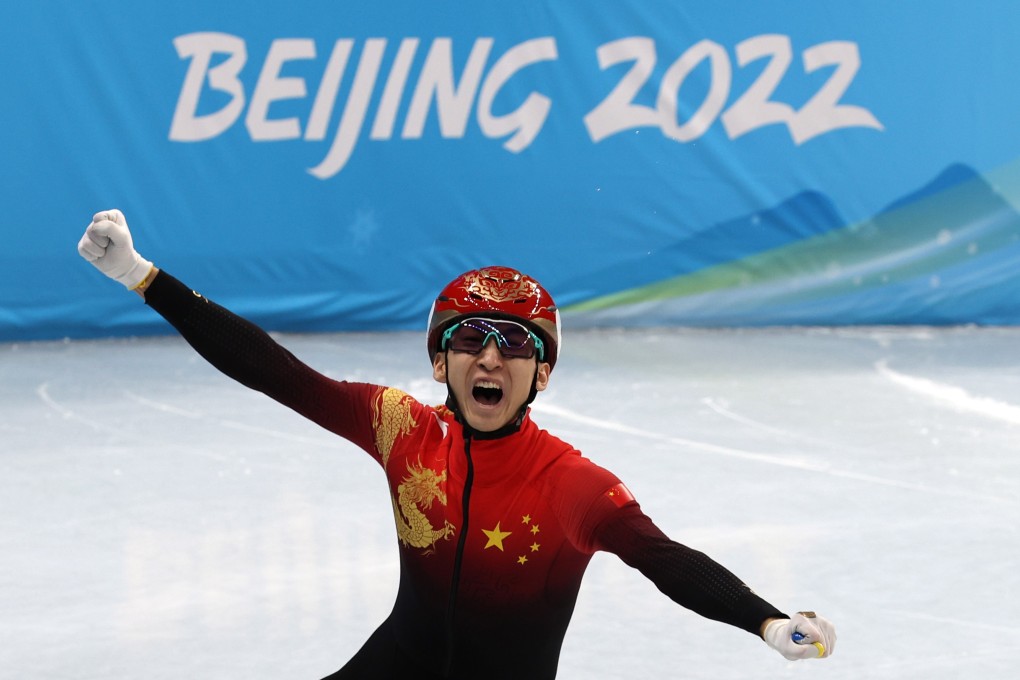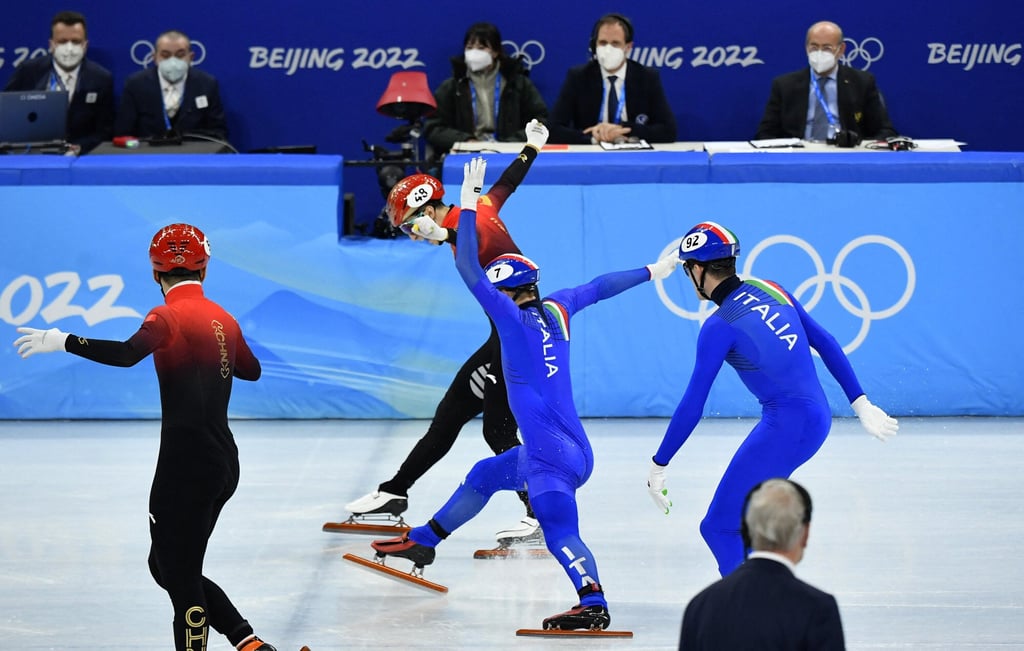Winter Olympics: emotional Wu lost for words after China’s golden start to 2022 Games
- Speed skaters win mixed team relay after controversial ruling in semi-final sees them through to last four
- Wu Dajing, Qu Chunyu, Fan Kexin and Ren Ziwei celebrate winning their country’s first medal at home Games

China’s athletes got their Winter Olympics off to a golden start on Saturday, winning the short-track speedskating mixed team relay after the result of their semi-final was controversially overturned.
The host nation looked to have been knocked out in the semi-finals on Saturday, after finishing third behind Hungary and the United States, but after protesting, the US and the team from Russia were both disqualified, leaving China to progress to the final.
In the gold medal race, Wu Dajing edged Italy’s Pietro Sighel by .016 seconds, or little more than half a skate blade. Hungary earned bronze on Saturday night.

Qu Chunyu, Fan Kexin and Ren Ziwei joined Wu for the historic victory, and while a tearful Wu struggled to contain his emotions afterwards, Ren said the past four years had been “very hard, really hard”.
“I have thought about what to say countless times, but all I can say is that I’m happy.”
Hong Kong’s athletes, meanwhile, do not start competing until later this week, but flag bearer Sidney Chu has already made an impression.